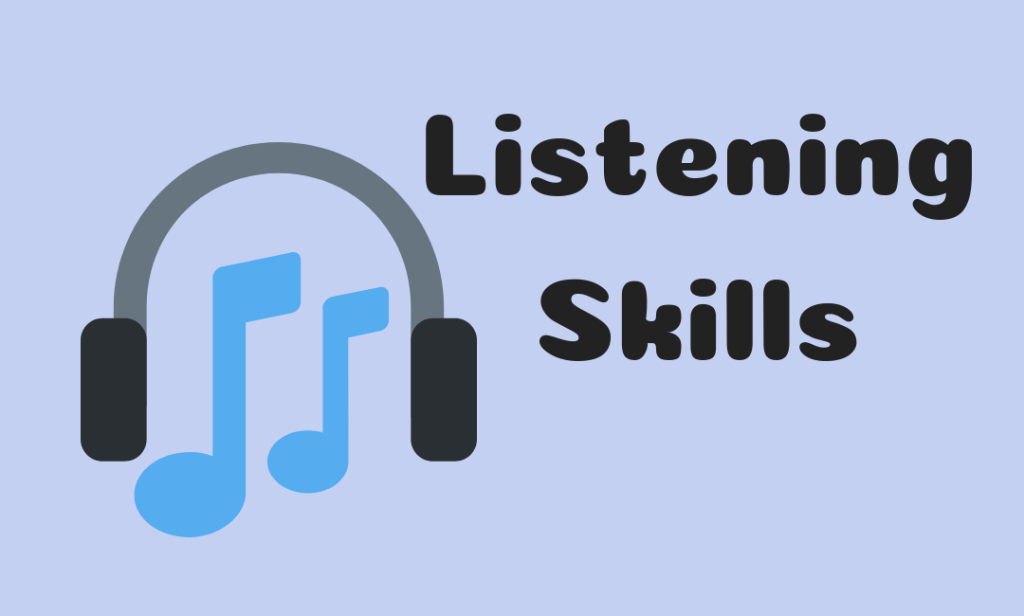Active listening is a crucial skill that plays a pivotal role in effective communication. Whether in personal relationships or professional settings, honing this skill can lead to better understanding, improved relationships, and enhanced problem-solving abilities. In this blog post, we will explore various strategies and techniques to help you improve your active listening skills and become a more attentive and empathetic communicator.
Understanding Active Listening:
Active listening goes beyond simply hearing words; it involves fully engaging with the speaker, demonstrating genuine interest, and comprehending the message being conveyed. To enhance this skill, one must focus on both verbal and non-verbal cues, allowing for a deeper connection and understanding.
Key Strategies to Improve Active Listening:
Give Your Full Attention:
- Active listening begins with undivided attention. Minimise distractions by putting away electronic devices, maintaining eye contact, and creating a conducive environment for meaningful conversation.
Demonstrate Non-Verbal Engagement:
- Utilise non-verbal cues such as nodding, smiling, and maintaining an open posture to convey your attentiveness. These gestures communicate your interest in the speaker’s message.
Paraphrase and Summarise:
- To ensure understanding, periodically paraphrase or summarise the speaker’s points. This not only reinforces the information but also demonstrates that you are actively processing and internalising the content.
Ask Clarifying Questions:
- When uncertainties arise, don’t hesitate to seek clarification through thoughtful questions. This not only displays your commitment to understanding but also encourages the speaker to elaborate on their thoughts.
Reflective Listening:
- Practise reflective listening by mirroring the speaker’s emotions and acknowledging their feelings. For example, respond with phrases like “I can see why you feel that way” or “It sounds like this situation is challenging for you.”
Avoid Interrupting:
- Resist the urge to interrupt or interject with your own thoughts. Allow the speaker to express themselves fully before providing your perspective. Patience is key to fostering an environment of open communication.
Remove Biases and Judgments:
- Approach conversations with an open mind, free from preconceived notions or judgments. This helps in understanding the speaker’s viewpoint without allowing personal biases to cloud your reception.
Practice Empathy:
- Cultivate empathy by putting yourself in the speaker’s shoes. Consider their emotions, experiences, and perspectives to establish a deeper connection and foster mutual understanding.
Develop Mindfulness:
- Train yourself to stay present in the moment during conversations. Avoid mentally preparing your response while the speaker is talking, as this can lead to missing crucial information.
Feedback and Self-Reflection:
- Seek feedback from others about your listening skills and reflect on your own communication habits. Identifying areas for improvement is the first step towards enhancing your active listening abilities.
Benefits of Improved Active Listening:
Stronger Relationships:
- Active listening builds trust and strengthens interpersonal relationships by demonstrating genuine interest and respect for others’ opinions.
Enhanced Problem-Solving:
- A better understanding of others’ perspectives facilitates more effective problem-solving and collaboration, especially in professional settings.
Increased Empathy:
- Active listening fosters empathy, allowing you to connect with others on a deeper level and appreciate their feelings and experiences.
Effective Conflict Resolution:
- By actively listening, you gain insight into the root causes of conflicts, paving the way for more constructive and mutually beneficial resolutions.
Improving your active listening skills is a continuous process that requires commitment and practice. By incorporating the strategies mentioned above into your daily interactions, you can cultivate a more attentive and empathetic communication style. The benefits of enhanced active listening extend beyond personal growth, positively impacting your relationships, professional success, and overall well-being. So, take the initiative to become a better listener and watch how it transforms your communication experiences.



